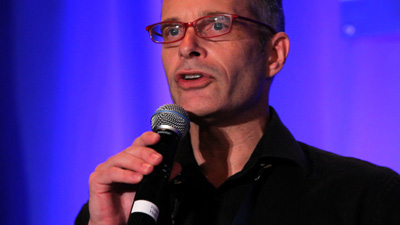Back to Newsletter Archive | Back to Island Voices
January 2011 Newsletter for Seniors on Vancouver Island
The concept in the article below represents a potential seismic shift in medical research, not just in the quest to find a cure for cancer but in all research for the benefit of society as a whole. I guess that I am cynical but I have always wondered why would research by pharmaceutical companies to find a cure for any disease ever be successful when they make a fortune treating them. Knowledge and input into research of this type should be ‘open sourced’ not self serving, whether real or perceived.
Roy Summerhayes
250-752-4837
‘Faster, better, cheaper’:
Canadian geneticist pioneers breast-cancer research ‘pipeline’
A Canadian geneticist hoping to crowdsource a cure for breast cancer and police forces combing through social-media websites for potential trouble spots in their communities are among the things being forecasted for 2011 and beyond by the World Future Society.
The Washington, D.C.-based think-tank releases an annual report of the most intriguing glimpses of the future gathered from researchers, futurists and big thinkers over the past year, including a Toronto-based geneticist who’s working on a novel way to seek a cure for cancer.
Andrew Hessel co-founded Pink Army Co-operative in 2009 because he was frustrated by the glacial pace of big pharmaceutical development and convinced lives could be saved faster with many brains working collectively.
He’s hoping to attract 2,500 people who will pay $20 each for a share in the non-profit Pink Army, and he’s collected about 420 mini-investors so far. The seed money will fund the first steps in what he envisions as a crowdsourced cure tailored for each person’s cancer and powered by synthetic biology, a fast-growing area of genetics that lets researchers rewrite DNA code instead of just cutting and pasting.
“I do this not because I’m running a lab or want to make a million dollars; I’m doing it because it’s such a powerful technology and almost nobody knows about it,” he says. “The only way you’re ever going to beat cancer is, first of all, strip the profit motive out of it — that’s just crazy.”
Profits and patents have “siloed” cancer researchers and companies who jealously guard their innovations rather than building on each other’s work and making significant strides in cancer treatment, Hessel says.
He chose breast cancer as a starting point because the disease has such a powerful advocacy and fundraising community, and once Pink Army has enough funding to get off the ground, he plans to open up the research and design process to a Wiki-type model.
“I don’t care where the design comes from. It could be a 10-year-old kid, it could be a professor emeritus with a great idea, I don’t care,” he says.
“The goal of Pink Army is to put together a design pipeline that essentially allows individualized drugs to be made faster, better, cheaper.”
The World Future Society forecasts also highlight a Washington-area futurist, who says social media will play a big role in future law enforcement.
Eric Meade, vice-president of the Institute for Alternative Futures based in Alexandria, Virginia, sees potential in the next few years for police forces to sift through the vast trove of information people post on social media sites looking for digital “tripwires” that suggest problems on the horizon, similar to Google’s Flu Tracker following seasonal outbreaks based on symptom searches.
“If we were really engaged with communities through these social media, especially highly vulnerable communities where crime and other social ills are more prevalent, we could map those dynamics like you would with the flu,” he says. “What are the tensions within the community, what are the key words that tend to anticipate violence or a riot or gang-related activity? Where does an argument among kids go from being an argument among kids to a gunfight in the streets?”
Public health agencies are already working with various data sources to track determinants of health such as education, obesity and nutrition, Meade says. He predicts that within five or 10 years, it will be common for police forces to use the enormous cache of social media data to better understand their communities and the problems in them.
Aside from prevention, the increasing dominance of social media in our everyday lives — especially among young people — suggests it could also be used as a lever for punishment in future law enforcement through a sort of digital house arrest, he says.
“Right now, we take away people’s physical freedom and we throw them in jail. If people value their virtual freedom, then it seems reasonable that could be something we take away as well,” Meade says.
BY SHANNON PROUDFOOT, POSTMEDIA NEWS
VANCOUVER SUN DECEMBER 31ST 2010.
© Copyright (c) Postmedia News

